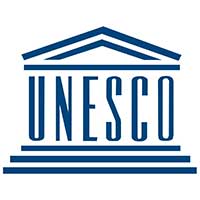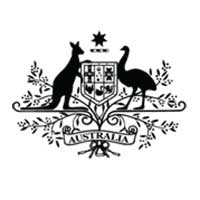
Free Online Course on “Journalism in a pandemic: Covering COVID-19 now and in the future”
Course in Engineering ShortlistOpportunity Details
-
Opportunity ID 14394
-
Degree Non Degree Program/Certificate
-
Language Requirement Not Required
-
Opportunity Type : Fully Funded
Opportunity Description
As COVID-19 pandemic has occupied the world as well as the news, the Knight Center, UNESCO, and WHO have launched a free online course for journalists to help arm them with knowledge and means to cover the virus and the health during this time, social and financial crises it is producing. The Knight Center is offering the free online course “Journalism in a pandemic: Covering COVID-19 now and in the future.”
The Knight Center for Journalism in the Americas at the University of Texas at Austin, in collaboration with UNESCO and the World Health Organization (WHO), with support from the Knight Foundation and the United Nations Development Program (UNDP) organizes this free training program/course.
Why should journalists give time to such course when they are already super busy covering the pandemic?
Maryn McKenna answers this. “This story is so big: It includes not just epidemiology and clinical caution and biomedical research, but politics and finance and trade and many other topics,” McKenna, the MOOC instructor, said. “I’m a science journalist who has written about epidemics for a very long time, yet I am learning new things every day — and I think many other journalists will be in the same position.
The award-winning science journalist says: “But, beyond the expertise question, there’s also an emotional issue. Those of us who are covering COVID-19 are obliged to have a deeper understanding of how dangerous this virus is, much more than most of the general public have to consider,” “It’s hard not to feel endangered, hard not to be worried for your loved ones and friends. At such a time, to have a professional community to bear the brunt jointly makes a big difference. We hope this course will create one.”
Details:
Topic: Journalism and COVID-19
Duration: May 4 to May 31, 2020
Languages: English, Spanish, Portuguese and French
Delivery mode: MOOC (massive open online course)
Instructor: Award-winning science journalist and author and TED speaker Maryn McKenna
Learning objectives:
At the end of this course, attendees should be able to:
- Extract knowledge from many sources to understand the history of the COVID-19 epidemic to date,
- Assess competing claims made for new scientific research and examine its helpfulness to the course of the pandemic,
- Attribute the main story lines of the COVID-19 pandemic to their particular beats and passion, no matter medical, political, social or financial,
- Perceive the dangers of disinformation and misinformation around COVID-19, as well as risks to freedom of speech and journalists’ safety,
- Outline a plan for covering COVID-19 from this point, applying the local setting of their newsrooms and political systems,
- Take part in a worldwide community of journalists covering COVID-19 so as to share perceptions and practical experience.
Course structure and contents:
The four-week course, split into weekly modules, will cover:
First week: The history of epidemics and disasters in the 20th century. The module will also cover whether governments planned for future pandemics.
Second week: Covering COVID-19 now. How the pandemic has come through in the past four months, especially regarding healthcare crises, international supply chains, and arguments over social distancing and mask-wearing. How have different governments acted against? Ultimately, how important is freedom of expression and dispelling misinformation and disinformation?
Third week: Optimism for treatment and vaccines. What competing claims for treatments of the disease have been made so far, and how long will it take to find a vaccine and antibody test? What is the role of hype and media favoritism in advancing and deflating proposed treatments?
Fourth week: The way forward. The final module sheds light on story angles for continuing the media coverage and answering questions about how COVID-19 has transformed our world. It will also look at journalists’ self-care in the process.
McKenna will offer the course with the assistance of scientists and other journalists as guest speakers and assistant instructors who speak Spanish, Portuguese and French. Furthermore, the course contains video classes, PowerPoint presentations, readings, quizzes and debate forums.
Like all Knight Center MOOCs, the course is asynchronous, meaning participants can take it in the days and times that are best suitable for them. Though, there are suggested weekly deadlines to complete activities in order not to fall behind.
Tools required
You will only need to have access to an Internet connection and a web browser.
Course benefits
Participants who successfully complete course modules can pay an administrative fee of U.S. D30 to receive a certificate of completion in PDF format. The Knight Center will look over the cases of students who need a waiver of that fee. No formal college credit is related to the certificate.
Who can enroll?
The COVID-19 pandemic is the only story dominating the world right now; it contains every beat in the newsroom. Therefore, this course should appeal to journalists with a wide range of experience, from science and medical journalists familiar with covering contagious diseases to generalists for whom the complexities of disease tracking, clinical trials, and vaccine regulation are new things.
How to enroll?
To enroll for this course, please create an account and go through the processes described under “how to register”.
To read further information, please visit Journalism in the Americas BLOG.
Other related opportunities
- Top 20 Free Online Humanities Courses by Alison
- Orient” Scientific Center for Oriental Journalism was opened at Al-Farabi Kazakh National University

